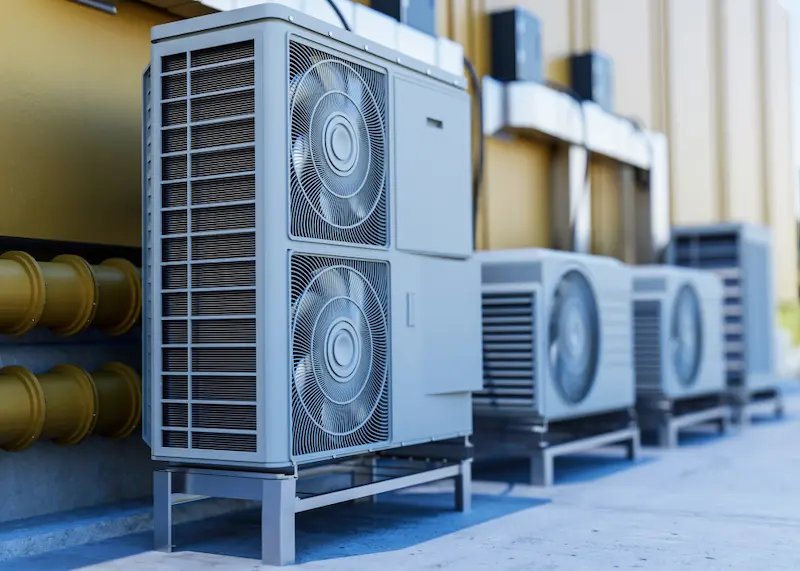Perhaps you’ve heard the term ‘private equity’ thrown around as a buzzword within the HVAC industry, but you’re unsure what it means.
What Does Private Equity Mean?
A Private Equity (PE) firm invests in businesses by taking controlling stakes and increasing their value to make a meaty profit when they sell. PE firms accumulate a stockpile of independent companies that will eventually sell and make a profit.
Why HVAC?
PE firms continue to grow, as reported in Forbes Advisor last year. The article states that in 2021, private equity deal value reached over $780 billion, making a new record.
The HVAC industry remains stable and has seen meaningful financial gains, which helps it to stand out and shine to PE firms. In addition, the HVAC industry is saturated with small companies with regional or local footprints, creating opportunities for consolidation.
If you are one of the many HVAC company owners nearing retirement that doesn’t have a family member who wants to take the reins of the business, PE firms step up a succession plan in cases like this. In the last 20 years, technology has positively affected the PE industry, making it more convenient to keep healthy communication even across far distances. Thus, it’s easier to scale up businesses.
Benefits of PE for Contractors
PE can be very beneficial in a few different business circumstances:
- If you’re a business owner retiring soon, you benefit from a succession plan
- If you’re a somewhat new business owner that’s overwhelmed and ready to transition from business ownership
- If you’re a small business owner who needs extra resources to reach substantial business growth
One potential upside of a PE firm is payment upfront for you as the owner, whereas selling an HVAC company to an acquaintance, friend, or family member usually involves a loan. Selling to PE often brings vast opportunities to make large sums, whether in a first sale or second, allowing for a lavish lifestyle or comfortable retirement. PE can also ensure long-term security for its employees and that its loyal customers are cared for.
There are many benefits to being with a large firm in certain circumstances. It often gives small business access to vital resources you would only have been able to pay for with the firm. They may offer employees better benefits at a better, less expensive price to you and the company. PE firms give access to more capital and make it easier to take risks. PE-partnered businesses also have an advantage when networking in the industry and negotiating with manufacturers and vendors.
If your business is under the PE umbrella, you become part of a network with access to business knowledge, strategies, and practices, which can be a helpful resource.
PE also comes with change. An exceptional PE firm will not adjust every bone of a business, but you should expect and be able to welcome some changes.
Who Shouldn’t Consider Private Equity?
1. You Want a Quick Exit
PE is one of the best solutions for some business situations. In the past, PE firms usually expected you to have a role for an extended time, possibly leading daily operations. While this still can be true, some firms are willing to buy with you retiring. If you want a quick exit, PE could still work for you; It may take a bit longer to identify PE firms that agree to those terms.
2. You Are Satisfied With Your Business Structure
If you are delighted with the structure of your business and its thriving, there is no need to explore the PE option. The main prerogative of a PE investment is to grow a business, and the firm often comes in with a set goal to meet its objective.
Owners who put in a lot of work to grow their business and are reaping the rewards they have created may be shocked and dissatisfied with a PE firm coming in with new expectations and the intensity of the daily work required to meet those goals.
3. You Want Full Control
If being the sole owner is very important, you might regret going to the PE firm route. A PE firm shouldn’t change every aspect of operations, but they still have some say and will be involved in the business. When going with a PE firm, you must get used to your new job as an executive or manager and let go of the “owner” title. There’s always a role for the owner-operator in the current PE market setup.
How to Prepare for PE
First and foremost, it’s essential to educate yourself. Do your due diligence and research to make the right choice. Then, prepare as if you’re going to interview for a big job. Ask a potential firm for their due diligence checklist and then gather the necessary information, such as:
- Year-to-year financials
- Employee information
- Legal records
- Business systems, services, and geographic footprint
In addition, you can use an HVAC business broker to help you begin the process and find the right PE firm. An experienced broker will be helpful and know the reputations of different firms. They have a network of interested firms and can guide you from start to finish. They’ll know what questions to ask and which documents to ask for. They’ll have you ask the firm for a list of former executives of acquired businesses that you can contact as a reference. Stick with a PE firm with a proven track record of healthy growth.
The relationship between a PE firm and an HVAC business is a partnership, and both parties should treat it that way. A cultural and operational fit should exist, and the collaboration should feel ‘right.’ If you still feel lost, contact an HVAC business broker for advice on selling your HVAC business or transitioning to a PE firm.







